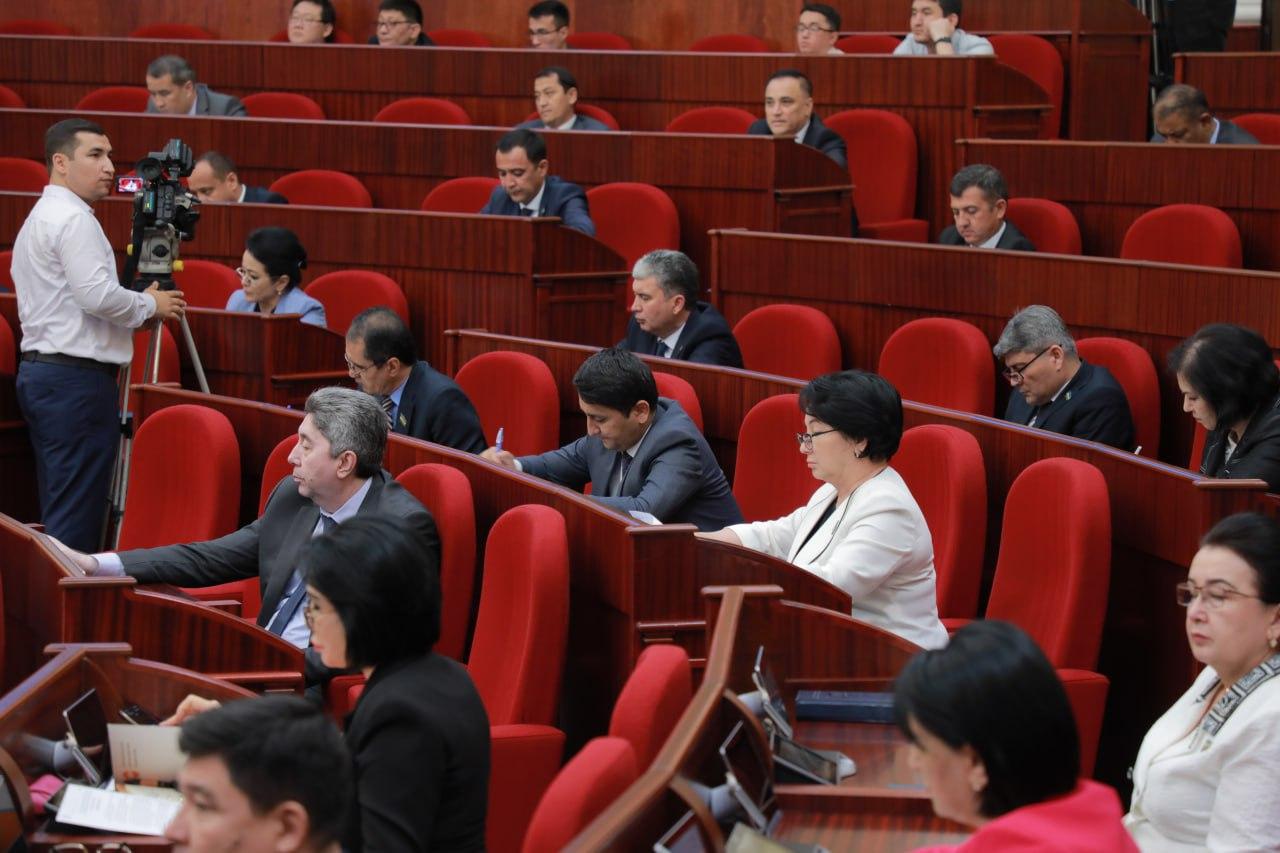
While a hokim’s candidate is being considered, the procedure for him to present the regional development program to the Council of People’s Deputies is being determined.
In yesterday’s plenary session of the Legislative Chamber of the Oliy Majlis, the draft law “On introducing amendments and addenda to some legislative acts of the Republic of Uzbekistan in connection with the improvement of the constitutional foundations of local state power in the renewed Constitution of the Republic of Uzbekistan” was thoroughly discussed.
According to the draft law, several additions and amendments to the law “On Local State Power” and other legal documents are envisaged. In particular, it is established that local Councils are headed by a chairman elected from among the deputies, who operates on a public basis and can be dismissed from office before the term.
Members of the faction of the People’s Democratic Party of Uzbekistan expressed their suggestions and comments on some norms of the draft law.
Firdavs SHARIPOV, Member of the faction of the People’s Democratic Party of Uzbekistan in the Legislative Chamber of the Oliy Majlis:
– In the draft law, it is written that one of the chairpersons of the Council’s permanent commission will preside over the session when considering the issue of early dismissal of the chairman of the Council of People’s Deputies. In the following articles, there are opposite aspects to this norm.
Article 18 provides for convening and conducting sessions of the Council of People’s Deputies, introducing issues to the session’s discussion and considering them, organizing and electing bodies of the Council of People’s Deputies, listening to reports on their activities, responding to Council requests, requests from deputies, the procedure for reviewing draft decisions, voting, announcing decisions, determining the number of persons invited to the session, as well as the responsibilities of deputies and other issues related to the organization of the work of the session are determined in accordance with the working procedure of the Council of People’s Deputies. I believe that this is also one of the main conceptual issues.
Also, local Councils of People’s Deputies are given new powers. For example, every year, the representative of the Oliy Majlis on Human Rights (Ombudsman) is expected to hear information about the activities of the regional representative on the protection of human rights, freedoms, and legal interests. However, the Law on Children’s Ombudsman was adopted, and they have regional representatives. They must also provide information to local Councils. This aspect has also been neglected. Although it was specified in the presidential decree that the regional departments of the Ministry of Internal Affairs should report quarterly, this period was changed to every 6 months in the draft law. In general, many aspects need to be considered conceptually.
At the plenary meeting, the deputies expressed their opinions on several standards. The proposals and relations were discussed. In general, the deputies supported the draft law in the first reading, taking into account that the norms contained in the draft law allow for the full realization of the division of powers in localities and establish regional administration based on the principle of “serving the interests of the population”, and bring the legislation into line with the new Constitution. It was agreed that their proposals would be considered before the second reading.
A parliamentary inquiry on medical services for children in general secondary education institutions was considered. Effective parliamentary control over the work carried out by the deputies of the Legislative Chamber of the Oliy Majlis in these areas and their effectiveness are established. The state of implementing laws and other normative legal documents on the regulation of the areas is being studied in a control-analytical manner.
The studies’ results, as well as the analysis of citizen appeals, show that there are actual issues waiting for a solution.
In particular, 1503 out of 10,165 general education schools in the country do not have medical rooms, and the existing medical rooms are not sufficiently equipped with the necessary equipment.
Also, the number of pediatricians working in general education schools in the country is 6,357, of which 890 (14.0%) work permanently, 5,467 (86.0%) are attached, and the number of secondary medical workers are 10,176, of which 7,799 (76.6 percent) work permanently, 2,377 (23.4 percent) are attached.
According to the analysis of medical examination results conducted in 2023, out of 5,954,321 children studying in schools, 5,797,691 (97.4 percent) underwent medical examinations, and various diseases were detected in 1,615,695 (27.9 percent) children.
Based on the information, a parliamentary request was sent to the Minister of Preschool and School Education H. Umarova. Members of the faction heard the answer of the ministry and expressed their opinion. The decision was made accordingly.
At the session, the issue of hearing the Minister of Employment and Poverty Reduction B. Musayev’s information “On the implementation of the program to create new jobs and support the population’s employment in 2024” was also considered, and a decision was made at the proposal of the faction of the People’s Democratic Party of Uzbekistan.
Zilola UBAYDULLAYEVA,
“O‘zbekiston Ovozi” (“Voice of Uzbekistan”) Correspondent.
“O‘zbekiston ovozi”, 10.07.2023, No.27
